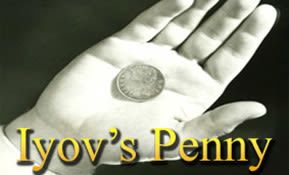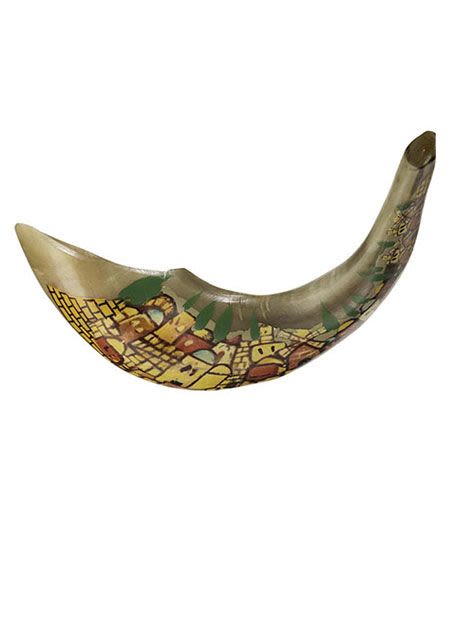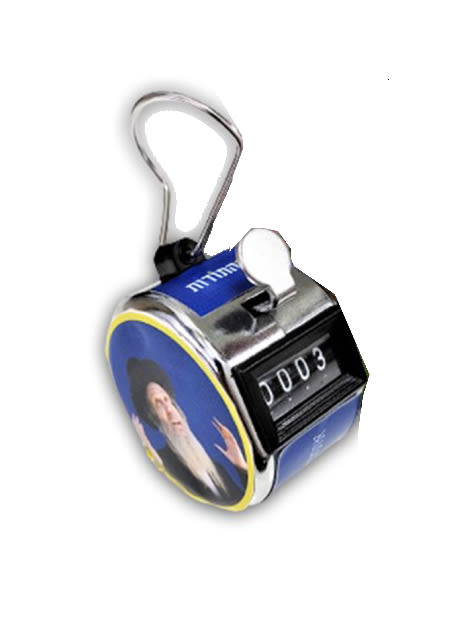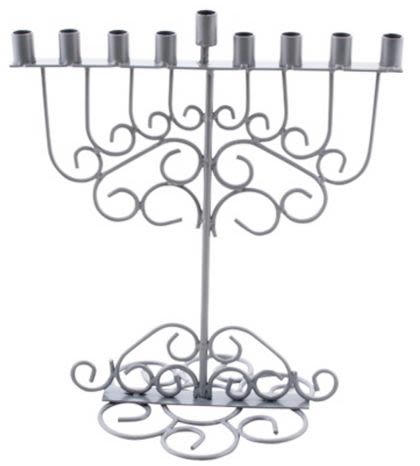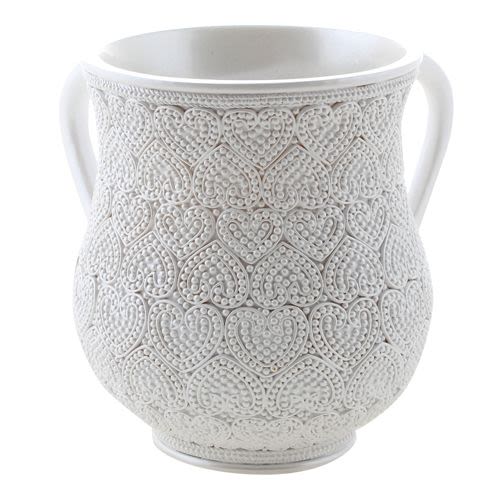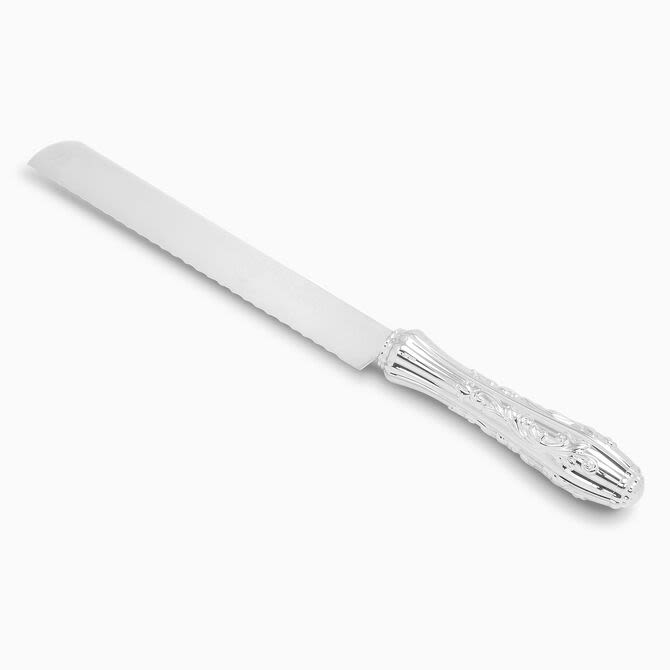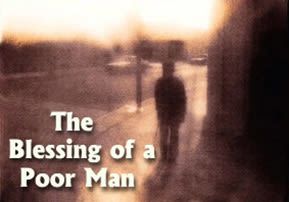
Lech Lecha: The Blessing of a Poor Man
Reb Moshe was honored and gladly the Baal Shem Tov's invitation. The Baal Shem Tov asked him, "Reb Moshe, do you know why you were...

Parshat Lech Lecha
Reb Moshe was honored and gladly the Baal Shem Tov's invitation. The Baal Shem Tov asked him, "Reb Moshe, do you know why you were granted the gift of extending blessing to others?"
"And you shall be a blessing" (Bereishit 12:2).
"The blessings are entrusted to your hand" (Rashi).
The people of Israel are called “Mamlechet Kohanim” – a Kingdom of Priests. The root of the Hebrew word “mamlechet” is “m’lacha” – work or labor. Each Jew has the ability to bestow a priestly blessing simply though the fulfillment of his “labor” in this world – to perform acts of kindness” (Sifrei
Chassidim).
* * *
Reb Moshe and Reb Yaakov lived in Vilna. They were both tailors. Both had rather average tailoring skills and therefore they were not in high demand. They barely made a living repairing the clothes of the poorer people of their community, of whom few could pay more than a handful of pennies.
Reb Moshe and Reb Yaakov joined together to ply their trade in the small villages and hamlets. They worked together for many years and managed to make a modest living.
Once, on their way back to Vilna after some weeks of travel, they stopped for the nights at a small wayside inn, where they met a Jew who earned his living collecting taxes for the local Poritz (the nobleman that owned the town and surrounding area). The tax collector was almost besides himself with worry: The daughter of the Poritz was about to be married and the tax collector had been charged with finding a qualified tailor to sew the wedding gown. Although the tax collector had brought the finest tailors from the nearby cities, none had met their exacting standards.
The wedding was scheduled to take place in just another two weeks. The Poritz had warned the tax collector that if he did not find a decent tailor to sew the wedding gown, he would lose his position – if he was lucky.
The two tailors looked at each other in amazement. “We’re the answer to your problems! We are two of the finest tailors in Europe!” they exclaimed.
The tax collector laughed. “You repair old clothes! What can you possibly know about creating a wedding gown?”
“Divine Providence has brought the three of us together,” they said. “Besides, what do you have to lose?”
The tax collector realized they were right. He had no choice. So he introduced the two tailors to the Poritz. They made a sample, and the Poritz was so pleased with their handiwork that he commissioned them to sew the wedding gown, and paid them handsomely for it. The tax collector retained his position, and even received an increase in salary.
The Poritz's wife hated Jews. When she saw the tax collector and tailors' happiness, she said to her husband, “If these Jews are so happy that the tax collector wasn’t thrown out, why don’t you tell them about the last tax collector that was thrown into the dungeon with his family? Maybe they’ll pay a hefty ransom to free them.”
The Poritz told the tailors the story of the last tax collector. He and his entire family had been in prison for so long that no one even remembered them.
The two tailors looked at each other. “How much does he owe?” they asked.
“Four hundred silver rubles” the Poritz answered.
The two tailors asked for a few minutes to discuss the matter in private.
“What do you think?” asked Reb Moshe.
“Are you crazy!” said Reb Yaakov. “I agree that something should be done for those poor people, but we’ve worked years for this money."
Reb Moshe understood that Divine Providence had brought them there to save the former tax collector and his family. “In that case,” said Reb Moshe, “I propose we dissolve our partnership and divide our profits.”
Reb Yaakov reluctantly agreed. After dividing their funds, each partner had one exactly 400 silver rubles.
Reb Yaakov tried to convince Reb Moshe not to give away all of his. But Reb Moshe was insistent. He paid the Poritz the four hundred silver rubles and the previous tax collector and this family were released from the dungeon.
The two tailors returned to Vilna.
Reb Yaakov used his earnings to open a dry goods store. It was so successful that Reb Yaakov soon became a wealthy businessman. Reb Moshe on the other hand, was reduced to begging.
One morning, Reb Moshe stopped a local businessman Reb Hirsh, to ask for a donation. Reaching into his pocket for a coin, Reb Hirsh asked, “And what will I get in return for my donation?
“I will bless you with success,” said Reb Moshe.
The businessman smirked, and handed Reb Moshe the coin.
That day, Reb Hirsh’s business made a handsome profit – much more than usual, and his dealings with his supplier, which was usually difficult, went smoothly. The following day, Reb Hirsh sought out Reb Moshe and gave him another donation and asked for his blessing a second time. Again Reb Hirsh’s business had a good day. Each day thereafter, the businessman would give Reb Moshe a donation and ask Reb Moshe for his blessing.
Within a short time, Reb Hirsh became a very successful and wealthy businessman.
Reb Hirsh never told a soul about his daily “routine.” One day, however, over a cup of coffee, he disclosed his secret to a close friend. It did not take long for the entire town to hear.
Soon, people were seeking out Reb Moshe with donations and requests for blessings. The holy Baal Shem Tov also heard of Reb Moshe and his power to bestow blessings. So when one of the Baal Shem Tov's chassidim traveled to Vilna, he asked the chassid to invite Reb Moshe to visit him in Mezhibuzh.
Reb Moshe was honored and gladly the Baal Shem Tov's invitation. The Baal Shem Tov asked him, "Reb Moshe, do you know why you were granted the gift of extending blessing to others?"
Reb Moshe simply shrugged. “I have no idea," he said.
The Baal Shem Tov asked Reb Moshe to recount his life story. Reb Moshe finally got around to telling the Baal Shem Tov the story about how he had released the tax collector and his family.
“That’s it”, the Baal Shem Tov exclaimed. The Baal Shem Tov then said: “A person’s livelihood is provided directly from Above. The Almighty sustains the world every moment, purely out of His kindness. The mitzvah of pidyon shevuyin” (the redemption of captives) is so great, not because one can help free an imprisoned Jew, but because the one who pays the ransom does so with that Godly attribute of kindness that lies within the heart of every Jew. And for that, the Almighty rewards him with a much greater treasure than wealth or riches. Hashem grants him the ability to bestow blessings upon others who have also performed acts of kindness and charity. ”
***
Tzvi Meir Cohn attended Yeshiva Hadar Hatorah in Crown Heights, Brooklyn after completing his university studies in Engineering and Law. While studying at the Yeshiva, he discovered a deep connection to the stories and teachings of the Baal Shem Tov. His many books about the Baal Shem Tov can be found in the Breslev Store. He can be contacted at howard@cohnpatents.com.


